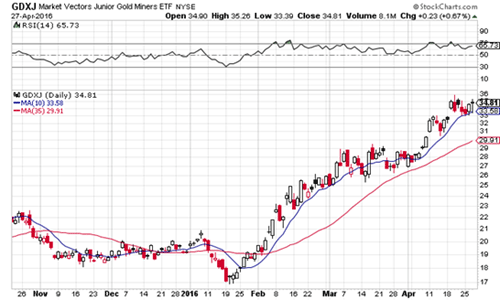The video update I posted on YouTube this morning was all about what didn’t happen yesterday. The Bank of Japan didn’t increase the monetary base. The Bank of Japan didn’t expand the scope of its asset purchase program. The Bank of Japan didn’t offer negative rate loans to commercial borrowers (paying borrowers to borrow).
That’s a lot of not doing. And on top of it, the US Federal Reserve was equally busy doing nothing. Citing a stronger labour market but sluggish growth, the Fed delayed (yet again) the full “normalisation” of US interest rates.
Rates remain abnormally low
Thus the de facto dollar devaluation I mentioned yesterday. Both central banks – one by not easing as expected and the other by not tightening as expected – have engineered a rally in the yen against the dollar. The yen rose 2.4% against the dollar in Tokyo. As I pointed out yesterday, this appears to be the unofficially sanctioned Shanghai Accord/dollar devaluation agreed in February.
The currency and macro implications of the move are fascinating. Charlie is writing about it in detail for The Fleet Street Letter readers today. I’ll excerpt a bit of that tomorrow. He’s looking at the euro side of it. Specifically, he’s looking at how southern Europe could rally quite unexpectedly.
Narrative wise, the scene is set for a weaker dollar
That doesn’t mean it would happen. But think about two exogenous/geopolitical events that would be used to justify a stronger euro and a weaker dollar. Can you guess them?
On the weak dollar, it’s Trump all the way. He looks like a lock for the Republican nomination. And then the general election against Hillary in November. That’s a long time for the world to wonder if an outsider can really break through the elite stranglehold on American politics. Political uncertainty equals dollar weakness.
On the strong euro – I hate to say it, but the market is telling you Brexit is toast. That’s one way of reading it anyway. The “narrative” is that just as US political anxiety is rising, the EU will be past its moment of crisis. With the UK back firmly in the clutches of Brussels, the common currency might rise even more – all of which makes sense anyway, if the goal of Shanghai was to engineer a de facto devaluation in the Chinese yuan by talking the dollar down (the yuan is pegged to the dollar, not the yen and the euro).
See what I mean? It’s a huge story for stockmarkets and investors. I’ve included above a chart of the Market Vectors Junior Gold Exchange Traded Fund. Please note it’s not a recommendation. It’s an observation. Of what?
Junior gold mining stocks are acting like a call option on a weaker dollar. They’ve doubled since early February. If you have the stomach for them, they’re more exciting than bull riding or roller coasters.

Category: Central Banks


